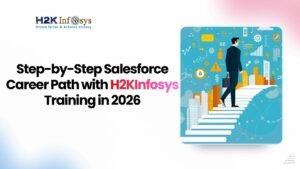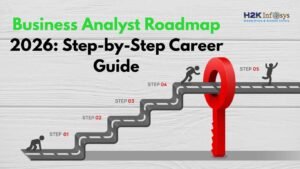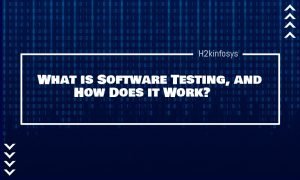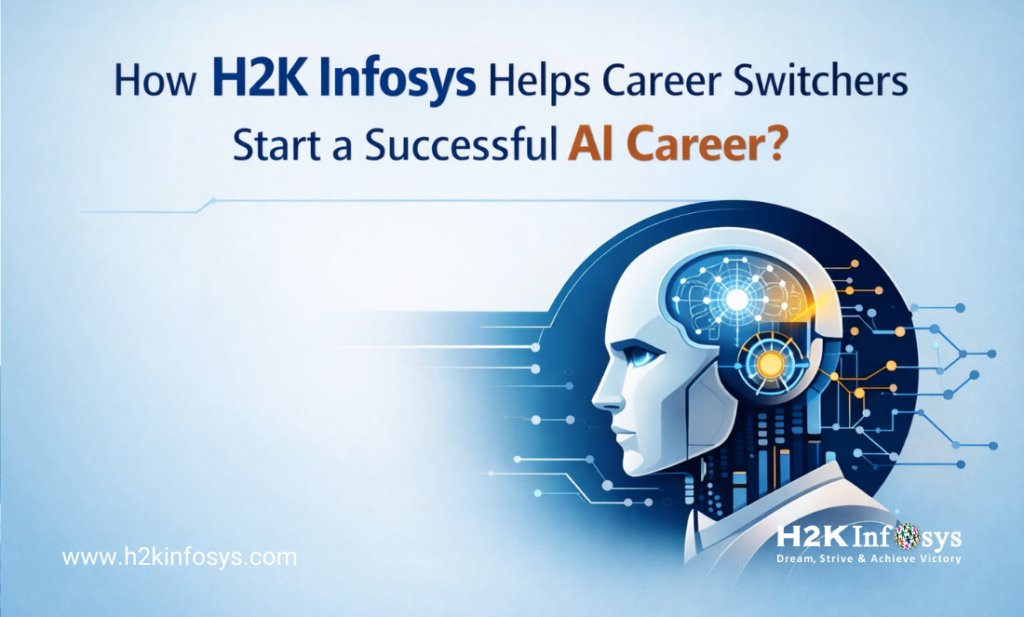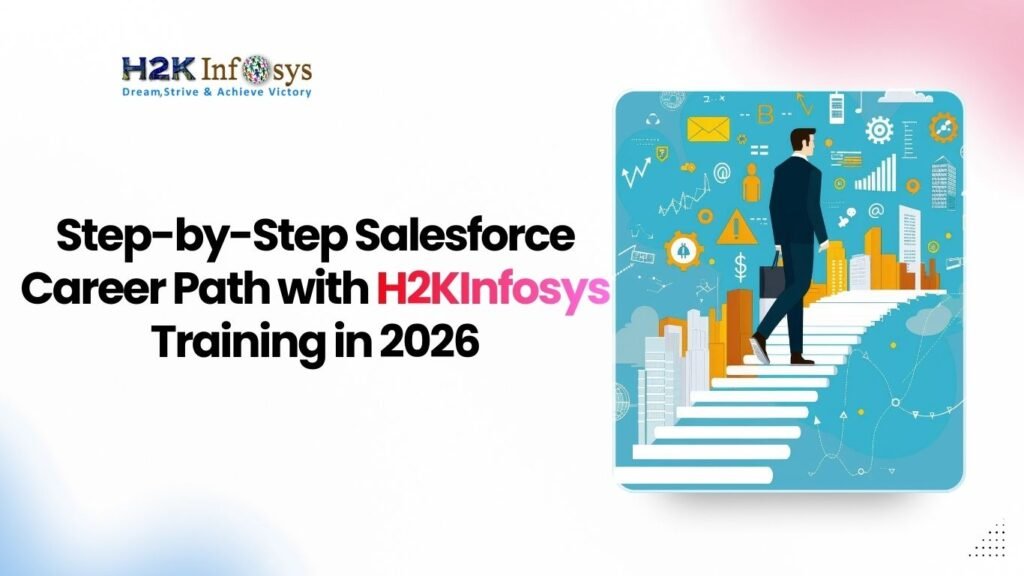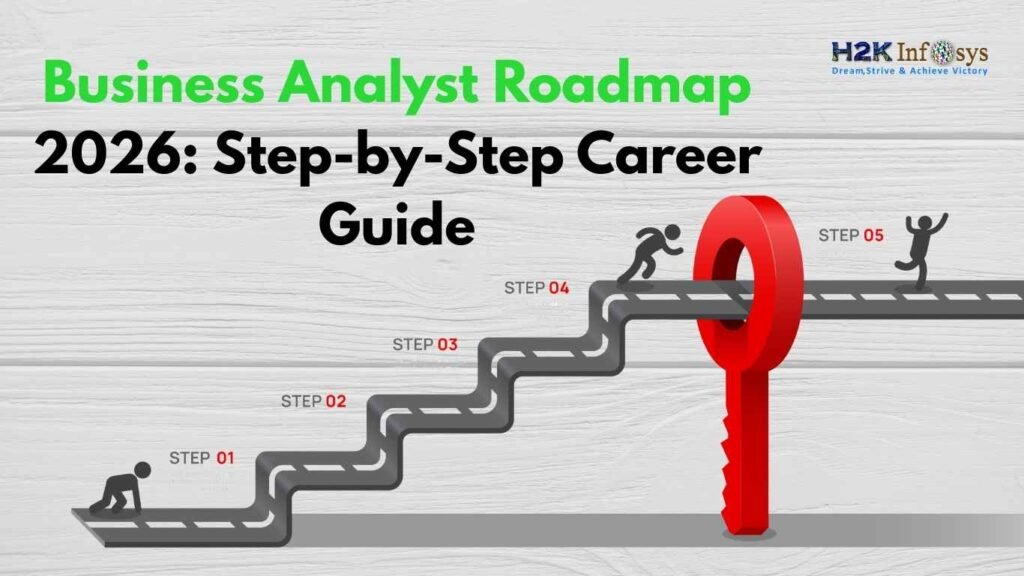What Is Salesforce SOQL?
Salesforce SOQL (Salesforce Object Query Language) is the structured language used in Salesforce to retrieve data from the platform’s database. Unlike SQL, which interacts with traditional relational databases, Salesforce SOQL is designed specifically to work with Salesforce objects like Accounts, Leads, Opportunities, and more.
In Salesforce administrator courses and every Salesforce admin course, SOQL is a fundamental concept. Understanding how to retrieve data effectively using SOQL can elevate your productivity as a Salesforce Admin or Developer. SOQL queries form the backbone of countless automations, validations, reports, and dashboards. From day one of your Salesforce administrator classes, you’ll encounter real-life scenarios that require solid SOQL knowledge.

Why Learn Salesforce SOQL?
1. Critical for Admins and Developers
Whether you’re enrolled in salesforce administrator classes or just started your salesforce course, SOQL is a tool you’ll use regularly. It helps you:
- Extract filtered records
- Generate reports
- Power Lightning Components
- Enable automation via Apex code
- Troubleshoot data-related errors
- Validate data relationships across objects
SOQL is especially crucial when working with custom fields, workflows, and automation rules. It ensures that your organization maintains a single source of truth and adheres to clean data practices.
2. Platform-Specific Querying
Salesforce SOQL is optimized for Salesforce’s multitenant architecture, offering efficient performance and tight integration with objects and relationships. Its structure is simple yet powerful, enabling developers and administrators to access specific data sets without writing complex code blocks.
3. Required for Certification
If you’re considering the salesforce admin certification cost, keep in mind that SOQL is covered extensively in most sfdc admin training and certification exams. The official Salesforce Administrator Certification includes questions directly related to SOQL structure, syntax, and best usage scenarios.
Core Concepts of Salesforce SOQL
1. Basic Syntax
SELECT Name, Industry FROM Account WHERE Industry = 'Technology'This retrieves account names and industries for all accounts in the Technology sector.
Understanding how to craft a precise SOQL query is fundamental. Each clause SELECT, FROM, WHERE, ORDER BY, and LIMIT has a unique role and can be layered to answer complex business queries.
2. Filtering Records
Use WHERE clauses for filtering:
SELECT Name FROM Contact WHERE Email LIKE '%@h2kinfosys.com'This statement fetches all Contacts with email addresses at the H2KInfosys domain. It is extremely useful for data segmentation, campaign targeting, or compliance monitoring.
3. Ordering and Limiting
SELECT Name FROM Account ORDER BY CreatedDate DESC LIMIT 5This returns the five most recently created accounts.
Adding ORDER BY and LIMIT enhances control over query output. This is particularly helpful when you’re creating reports or dashboards and need only the top-performing records.
4. Relationship Queries
SOQL supports parent-to-child and child-to-parent queries.
SELECT Name, (SELECT LastName FROM Contacts) FROM AccountThis allows fetching child object data within a single parent object query streamlining operations and reducing SOQL calls.
Parent-to-child relationships are handled using subqueries, and child-to-parent references use dot notation, simplifying complex joins found in traditional SQL.
Common Use Cases for Salesforce SOQL
1. Dashboards and Reports
While standard reports are available, custom SOQL lets you create targeted dashboards tailored to your business logic and KPIs.
2. Data Validation in Workflows
Use SOQL within Apex code to ensure data integrity. You can automate alerts or record updates based on specific SOQL conditions.
3. Integration with External Apps
Many integrations use Salesforce SOQL to pull real-time data into third-party systems. These integrations require reliable and high-performance queries.
4. Apex Triggers and Classes
Most Salesforce admin course cover how to use Salesforce SOQL in Apex code for triggers, batch processing, and data transformation. You’ll learn how to build Apex classes that depend on optimized SOQL to reduce resource usage and maintain Salesforce governor limits.
5. Security Checks
SOQL respects field-level security (FLS) and object permissions, meaning unauthorized fields will not be accessible to users without the proper permissions. This is a key advantage in data protection.
Best Practices for Using Salesforce SOQL
1. Select Only Required Fields
Avoid SELECT *. Fetch only what’s needed:
SELECT Name FROM ContactThis not only improves performance but also keeps your application compliant with field-level security best practices.
2. Use WHERE Clauses
Filter as much as possible to improve query performance.
SELECT Name FROM Opportunity WHERE StageName = 'Closed Won'Efficient filtering can be the difference between a 1-second and 20-second response in production environments.
3. Avoid Nested Loops
Bad Practice:
for(Account acc : [SELECT Id FROM Account]) {
for(Contact con : [SELECT Id FROM Contact WHERE AccountId = :acc.Id]) {
// Inefficient
}
}Good Practice:
for(Account acc : [SELECT Id, (SELECT Id FROM Contacts) FROM Account]) {
// Efficient nested query
}Always reduce the number of SOQL queries executed within loops. This is a frequent discussion point in salesforce administrator training online.
4. Use Relationship Queries Wisely
Understand parent-child vs child-parent syntax. Misusing them can result in incomplete or incorrect data retrieval.
5. Index Usage
Indexed fields (like Id, Name, and CreatedDate) perform faster. You can also request custom indexing via Salesforce support for large datasets.
6. Avoid Hard-Coding IDs
Hardcoding makes code fragile. Use Custom Settings or Custom Metadata Types for scalable solutions.
7. Governor Limits Awareness
Salesforce enforces strict limits:
- 100 SOQL queries per Apex transaction
- 50,000 rows per query
Exceeding these limits can halt your transaction, leading to data errors and user dissatisfaction.
8. Query Plan Tool
Use the Developer Console’s Query Plan tool to analyze and optimize your Salesforce SOQL queries. You can identify full-table scans and tune filters accordingly.
Salesforce SOQL vs SQL
| Feature | Salesforce SOQL | Standard SQL |
|---|---|---|
| Platform | Salesforce | Relational Databases |
| Joins | Only via relationships | Complex joins allowed |
| SELECT * | Not Supported | Supported |
| DML | Separate (Apex) | Combined with SQL |
| Multi-Tenant Ready | Yes | No |
Understanding this distinction is crucial for learners in salesforce administrator training online.
Real-World Example: Using Salesforce SOQL in a Project
Let’s consider a case where your company wants to send a promotional email to all Contacts from Accounts in the Healthcare industry.
SOQL Query:
SELECT Email FROM Contact WHERE Account.Industry = 'Healthcare'This SOQL query can be embedded into an Apex class that handles bulk email campaigns. It’s a practical example often found in salesforce classes online or capstone projects in salesforce administrator courses.
How to Learn Salesforce SOQL: Step-by-Step
Step 1: Enroll in a Salesforce Admin Course
Enroll in a comprehensive salesforce admin course that covers Salesforce SOQL from basics to advanced levels. Ensure it includes hands-on labs.
Step 2: Use the Developer Console
Access Salesforce’s Developer Console:
- Execute SOQL queries
- Test performance
- Debug data issues
Step 3: Build Real Projects
Apply SOQL in workflows, automation scripts, and data migration tools. This helps bridge theory with practical skills.
Step 4: Mock Certification Exams
Many salesforce administrator training online programs offer certification-style questions to prepare you for real-world usage. Practicing with timed quizzes can enhance your understanding of Salesforce SOQL significantly.
Step 5: Use Trailhead and Community Resources
Trailhead provides interactive challenges. Pair this with Salesforce community forums to ask questions, share knowledge, and gain insights.
Tools That Use Salesforce SOQL
1. Developer Console
Run queries, view results, and test logic directly within Salesforce.
2. Workbench
External tool to execute SOQL and REST API calls. It’s a popular option among developers for quick validation and data export.
3. VS Code with Salesforce Extension Pack
Ideal for working with SOQL inside Apex and Lightning Web Components. You can run snippets and debug faster using Salesforce CLI.
4. Data Loader
Export and import records using SOQL queries as filters. The tool respects query limits and ensures safe data transactions.
Challenges and How to Overcome Them
1. Understanding Relationships
New users struggle with parent-to-child vs child-to-parent queries. Diagrams and consistent practice help. Examples taught in salesforce classes online simplify this concept.
2. Hitting Limits
Structure queries to use subqueries and LIMIT wisely to avoid governor limits. Learn bulkification techniques in Apex development.
3. Misusing NULL Checks
Avoid = NULL. Use = null or != null in Salesforce SOQL to check null values.
4. Poor Indexing
If queries are slow, ensure indexed fields are used in the WHERE clause. Use selective filters and avoid unbounded queries.
Tips to Master Salesforce SOQL Faster
- Use Trailhead for interactive challenges
- Join Salesforce communities and forums
- Read official documentation
- Attend webinars and practice in a sandbox
- Leverage your salesforce admin course materials for real-world exercises
- Solve at least 5 queries daily to stay fluent
- Collaborate with peers in salesforce administrator courses to debug queries together
Common Mistakes to Avoid
- Forgetting LIMIT in large queries
- Using
SELECT *, which is invalid - Ignoring relationship fields
- Writing queries inside loops
- Assuming field names instead of verifying with the schema
All these mistakes are covered in salesforce administrator courses and labs for learners who want to become proficient quickly.
Conclusion
Salesforce SOQL is more than just a querying language it’s a core part of Salesforce data management. From dashboards to Apex triggers, SOQL plays a crucial role. Mastering Salesforce SOQL is essential for anyone taking a salesforce admin course, aiming for certification, or seeking job-ready skills.
Key Takeaways
- Salesforce SOQL is essential for working with Salesforce data.
- Used in dashboards, automation, and integrations.
- Best practices help optimize performance and reduce limits.
- Mastering it is key for success in salesforce administrator training online and job roles.
Ready to gain hands-on experience with Salesforce SOQL? Enroll in H2KInfosys’ salesforce classes online and build your expertise today!
Advance your tech career with the best Salesforce training online.













